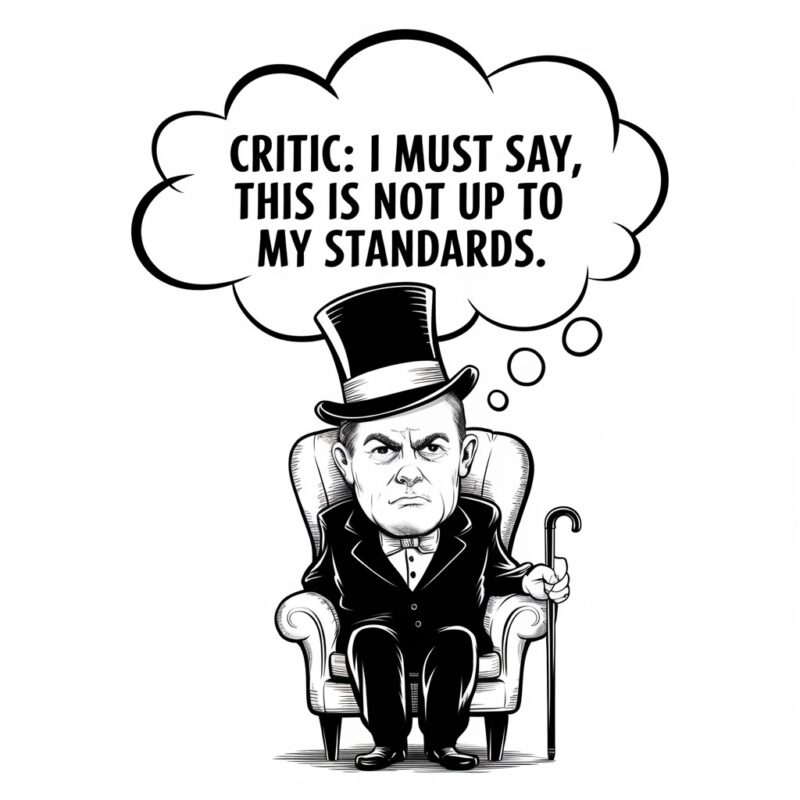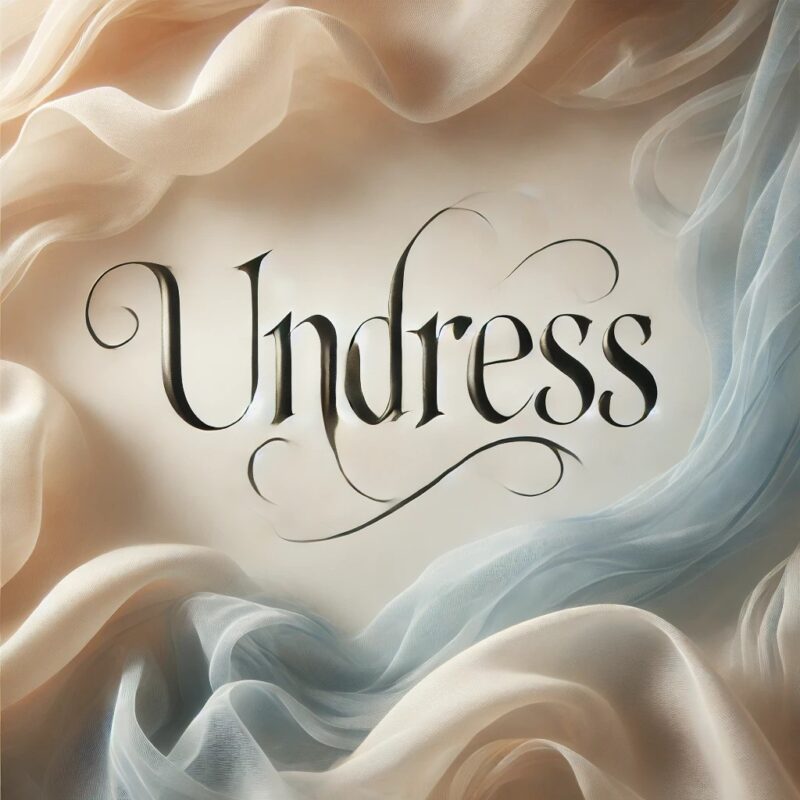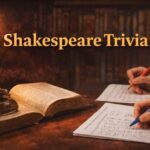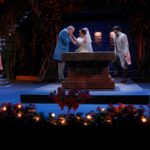Shakespeare’s influence on the English language extends far beyond his plays and sonnets.
He introduced over 1,700 words into the English lexicon, many of which are still in regular use today.
His creativity continues to shape everyday speech, making his works timeless.
Below, we explore some of his most impactful linguistic contributions, highlighting their origins and relevance today.
1. Bedazzled

Originating from The Taming of the Shrew, “bedazzled” initially referred to being overwhelmed by something visually striking. Today, it describes something glittering or overly ornate. Often used in modern fashion or to express admiration for sparkling objects, the word remains deeply tied to visual splendor.
Shakespeare’s original usage focused on the character’s reaction to something beyond their control, something that dazzled them with its brilliance.
Now, it has expanded to include things like bedazzled outfits or accessories, showing how language evolves.
- Key characteristics: Refers to overwhelming brightness or visual dazzle.
- Found in: The Taming of the Shrew
2. Swagger
“Swagger” comes from A Midsummer Night’s Dream. It refers to a bold or confident way of walking. In modern times, “swagger” often implies arrogance or cool confidence, making it a staple in pop culture, particularly in hip-hop and fashion.
Shakespeare used “swagger” to describe a cocky or self-assured character.
Over time, it became a word used to convey a sense of dominance or superiority. The transition into popular usage proves the lasting power of Shakespeare’s creativity.
- Key characteristics: Suggests arrogance or extreme confidence.
- Found in: A Midsummer Night’s Dream
3. Critic

The word “critic” first appeared in Love’s Labour’s Lost. It originally described someone who judges literary or artistic works.
Today, it has expanded into the fields of cinema, theater, and more. Critics are now integral to journalism, and their influence can make or break a production.
Shakespeare’s original critics were scholars and commentators. Now, anyone who reviews or evaluates content in art, music, film, or theater can be called a critic. Its evolution shows how deeply embedded critique has become in our culture.
- Key characteristics: Evaluates and judges artistic works
- Found in: Love’s Labour’s Lost
4. Lonely
Introduced in Coriolanus, “lonely” conveys a feeling of isolation or separation from others. It’s a universal emotion, so it’s no surprise that this word has become a staple in both literature and everyday speech.
Shakespeare used “lonely” to describe characters who felt disconnected from society or family. In modern language, it’s a common way to describe emotional solitude. Its persistence in modern language highlights how deeply Shakespeare understood human emotions.
- Key characteristics: Refers to feelings of isolation or being alone.
- Found in: Coriolanus
5. Addiction

From Othello, “addiction” refers to a compulsion, often tied to vice or habit. Now, it’s a common term in psychology and health, particularly relating to substance abuse.
The term’s evolution highlights its growing relevance in discussions of mental health and wellness.
Shakespeare’s use of addiction was more metaphorical, describing compulsive behaviors.
Today, it has taken on a medical context, representing physical and psychological dependencies.
- Key characteristics: Strong dependence on habits or substances.
- Found in: Othello
6. Dauntless
“Dauntless” emerged from Henry VI, Part 3, describing someone fearless and determined. In today’s world, the term is often used to describe motivational figures or characters in films and books. It conveys bravery and resolve in the face of adversity.
Shakespeare’s character who were dauntless showed relentless determination, and this quality has become admired in modern motivational speeches, sports, and action films.
- Key characteristics: Fearlessness and determination.
- Found in: Henry VI, Part 3
7. Eventful

As You Like It gave us “eventful,” meaning full of occurrences or happenings. It’s now a common way to describe busy days or significant periods. Whether in personal anecdotes or storytelling, “eventful” captures the essence of a moment packed with action or drama.
Shakespeare’s use implied that life is a series of events, both trivial and monumental.
Modern usage has made the word a go-to for recounting anything from a chaotic workday to a memorable vacation.
- Key characteristics: Full of events or significant occurrences.
- Found in: As You Like It
8. Lackluster
In As You Like It, “lackluster” is described as something dull or uninspiring. Today, it’s frequently used in critiques of performances, art, or even sports.
The term perfectly captures mediocrity, a quality Shakespeare’s characters sometimes embodied.
Shakespeare applied it to describe something without shine or brilliance. Now, it’s a common expression for anything that fails to meet expectations, especially in performance reviews.
- Key characteristics: Dullness or lack of vitality.
- Found in: As You Like It
9. Undress

The word “undress” appeared in The Taming of the Shrew. It is simply meant to remove one’s clothing. Today, it’s used casually in conversations around fashion and intimacy.
Its straightforward meaning remains unchanged, showing the lasting simplicity of some Shakespearean contributions.
Shakespeare’s use was in the literal sense, describing characters in moments of vulnerability or intimacy. It remains a staple in fashion and casual conversations, proving that some terms need little evolution to remain relevant.
- Key characteristics: Removal of clothing.
- Found in: The Taming of the Shrew
10. Green-Eyed
In The Merchant of Venice, Shakespeare used “green-eyed” to symbolize jealousy. It’s still a popular metaphor today, especially in romantic or competitive contexts.
The phrase captures envy’s intensity, making it relatable in countless modern situations.
Shakespeare personified jealousy with the image of a green-eyed monster, a metaphor that has stuck through the centuries.
It remains a powerful way to describe the feeling of envy or rivalry.
- Key characteristics: Metaphor for jealousy or envy.
- Found in: The Merchant of Venice
Vocabulary trivia offers an easy way to connect Shakespeare’s language to modern speech, especially through well-documented examples of his coined words.
The Bottom Line
Shakespeare’s creativity endures through the words he introduced, many of which remain central to everyday speech.
These words illustrate his deep understanding of human nature and language.
His “inventions” continue to influence the way we communicate today, proving that Shakespeare’s linguistic genius still resonates across centuries.
Shakespeare’s creativity with language is still celebrated today, as seen at events like the Oregon Shakespeare Festival, where his timeless works come to life on stage.







